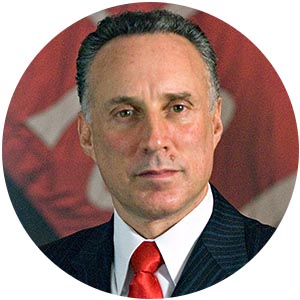FX markets move to ramp up self-regulation before politicians step in.

Back To Supplement
Global regulators are preparing clear and detailed rules to keep foreign exchange traders at banks and other institutions from behaving badly. They want “time stamping” of transactions and changes to “last look,” a practice where market makers have a last chance to accept or reject orders when a client wants to trade against a quoted price. Following recent FX scandals, if this effort to clean up the business succeeds, corporations may finally begin to feel more secure that they’re getting the best rates.
Conduct unbecoming an FX trader will be more clearly delineated in a global code for the wholesale FX business being drafted by a working group of the Bank for International Settlements (BIS). Guy Debelle, assistant governor of the Reserve Bank of Australia, is leading the effort as chair of the markets committee of the BIS.
“We are not trying to reinvent the wheel,” Debelle said at a recent press conference hosted by the Bank of England. “And we are not just harmonizing existing codes, but identifying gaps that need filling and explaining what we regard as good practice.”
Global banks have paid more than $10 billion in fines and settlements related to FX rate-rigging activities in the market, and more than 30 traders were fired or suspended. “This new global code of conduct is absolutely necessary and long overdue,” says David Gilmore, partner and economist at Essex, Connecticut–based Foreign Exchange Analytics.
Foreign exchange is the largest unregulated market in the world, and it has long had a Wild West characterization.
~ David Gilmore, Foreign Exchange Analytics
Because the foreign exchange business crosses borders, it’s logical that it should operate under a global code of conduct, Gilmore says. The reality, however, is that there has been no global body to develop or enforce regulatory reform.
Marc Chandler, global head of currency strategy at Brown Brothers Harriman in New York, says: “Investors need to have a greater sense of security that they are not being ripped off. A number of major banks have pled guilty to criminal charges. It used to be the case that no one would deal with felons. The regulators and the industry are wrestling with moral issues.”
CODES OF CONDUCT
The industry needs to come up with rules of engagement that banks can adhere to, Chandler says. “If market participants don’t do it themselves, who knows what the politicians could do, particularly with their lack of understanding of how the business operates,” he says.

Self-regulation might work if the rules are clear, he says. “If someone is found guilty of violating the rules, sometimes that is stigma enough when reputational risk is so important.” ISDA, the International Swaps and Derivatives Association, has developed legally binding global market standard documentation for over-the-counter (OTC) derivatives transactions, Chandler says. The FX market could come up with something similar that specifies rights and responsibilities.
The global FX market code being created by the BIS working group is set to come into effect in May 2017, but Debelle says the group plans to publish draft proposals on some of the more contentious issues in May 2016. “There clearly needs to be a significant rebuilding of confidence in the way this market functions,” Debelle says. “Financial markets need to rely on trust to function effectively.”
Debelle says the working group’s effort is two pronged. Simon Potter, head of markets at the Federal Reserve Bank of New York, is in charge of drafting the new code. Chris Salmon, head of markets at the Bank of England, is responsible for finding ways to foster maximum adherence to the code, like embedding it into firms’ systems and controls.
In addition, David Puth, CEO of CLS, the largest multicurrency cash settlement system, is chairing a broader market participants group, including infrastructure providers, to support the FX working group.
Potter says that if market participants fail to follow the working group’s best practices recommendations, it “may prompt authorities to conclude that further regulation is the only way to strengthen the integrity of the market.” The market is also adjusting to structural changes, including the adoption of electronic trading, which now represents as much as 70% of daily turnover, up from 30% a decade ago, Potter says.
UNPRECEDENTED CHANGE
The use of trading algorithms has also risen sharply, as banks increasingly rely on computers rather than people to execute customer orders. [But] “Algos get turned off in times of crisis, and you’re left with the banks, which no longer make markets in the same way,” says Gilmore of FX Analytics.

Chat rooms were among the tools used for collusion, so many banks have forced employees to avoid multibank chat rooms. “Banks can’t talk freely about the deal flow they see,” Gilmore says. “They are flying blind, using instruments only. This is affecting liquidity and suppressing the color provided by voice traders.”
With information on deal flow gone, there is more volatility. The market is less efficient with less information, Gilmore says. Electronic spreads have narrowed. “All of these changes are making the OTC market less profitable,” he says.
Technology has helped the foreign exchange market to grow immensely, with the bigger volumes being handled by fewer traders.
Under the Dodd-Frank Act, foreign exchange options, currency swaps and nondeliverable forwards are subject to mandatory clearing, and must be traded on either a designated contract market or on a swap execution facility.
Exchanges are hoping to play a bigger role in the FX market. Deutsche Börse in July agreed to buy 360T, an interbank FX trading platform, for $796 million. BATS Global Markets purchased FX trading network HotSpot in January for $365 million and opened a new, London-based FX matching engine. Nasdaq recently announced plans to launch its own FX market platform in 2016.
Meanwhile, the foreign exchange committees in eight major financial centers (Australia, Canada, the eurozone, Hong Kong, London, New York, Singapore and Tokyo) at a joint meeting in Tokyo in late March adopted a common set of rules and principles to guide market participants. The so-called Global Preamble is a major step toward harmonized reform and will ensure there is no room for unethical arbitrage, says Marshall Bailey, president of ACI Financial Markets Association, the trade body representing 13,000 market participants in the fixed income, currency and commodity markets.
“Different regions applying their own codes of conduct could have unintended consequences and drive trading to less-stringent regulatory jurisdictions,” Bailey says. “A universal code of conduct, with comprehensive guidelines and best practices will help in providing a moral compass and guidance to which all professionals can adhere.”
The ACI has introduced a new e-learning and certification portal (ELAC), which allows members to test their knowledge of the group’s updated model code. It uses interactive scenarios to show how the rules can be applied in a variety of situations.
“Measuring and monitoring progress is central to behavioral change,” Bailey adds.



